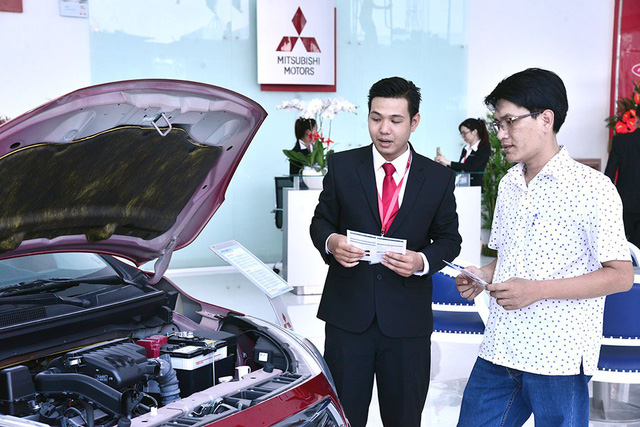Ho Chi Minh City’s seaports went through January without receiving a single automobile shipment, an ode to the immediate impact of a government decree that applies stricter regulations on car imports.
While Vietnamese consumers often buy cars during this time of year to celebrate the Lunar New Year, or Tet, which falls in the middle of this month, the supply of imported cars is falling short due to Decree 116, which took effect on January 1.
The fiat requires all models of imported vehicles to obtain a Vehicle Type Approval certification issued by authorities in the exporting country. The problem is that most countries that sell cars to Vietnam don’t use such a document and it will take time for exporters to enact measures to meet those requirements.
The decree has effectively closed the door for car importers to bring new stock into Vietnam until changes are made.
Dinh Ngoc Thang, deputy head of the Ho Chi Minh City customs department, confirmed to Tuoi Tre (Youth) newspaper that not a single car was imported to the southern metropolis through its seaports last month.
This goes against the typical Tet holiday buy-up, Thang said.
 |
| A Mercedes-Benz is seen at a showroom in Ho Chi Minh City. Photo: Tuoi Tre |
Data from the Vietnam Customs also shows that only 80 cars, including a mere six vehicles with nine or less seats, were imported to the Southeast Asian country in the first half of January.
To put this into perspective, the country imported 7,000 units worth US$153 million in January 2017.
Representatives of foreign carmakers in Vietnam have confirmed that Decree 116 is to blame for the shortage, and they predict the phenomenon will continue, at least into the near future.
A Honda Vietnam representative told Tuoi Tre that the company is still unsure of when it will be able to meet the requirements to resume importing cars to Vietnam. Even when the paperwork is actually able to be processed, it will take at least two more months for the shipment to pass customs clearance and reach end-users, he added.
An executive of a Ho Chi Minh City-based car importer also said even after obtaining the required Vehicle Type Approval, the company will be required to wait another 70 days to have its imported car tested before customs clearance.
 |
| Workers are seen at a car assembling plant in Vietnam. Photo: Tuoi Tre. |
Prices soar over supply shortage
The new rule came into effect on January 1, the same time Vietnam scrapped its 30 percent import tariff for cars imported from within the Association of Southeast Asian Nations (ASEAN).
Local consumers had anticipated to be able to buy cars at cheaper prices following the tariff removal.
However, the strict requirements set by the new decree have left consumers disappointed, with carmakers lamenting that they cannot import new stock to meet the current demand.
The reality, though, is even worse. Car sellers are taking advantage of the supply shortage to hike prices for the available stock, boosting prices well above what they would be with the tariff.
A Honda CR-V, for example, is now some VND200 million ($8,800) costlier than it was pre-Decree 116. At Toyota Fortuner dealerships, sellers are only agreeing to sell if buyers purchase extra components.
 |
| Workers are seen at a car assembling plant in Vietnam. Photo: Tuoi Tre. |
Vietnamese automakers might be the only ones happy with the new decree.
Thaco Truong Hai and Hyundai Thanh Cong, for instance, claim the new requirements are legitimate and necessary, saying the stricter rules will help ensure that only quality vehicles are imported to Vietnam to protect consumers’ right and interest.
Some experts also say the ‘technical barriers’ erected by Decree 116 are necessary to prevent Vietnam from becoming a dumping site for cheap, low-quality cars, while at the same time encouraging local carmakers to improve their performance.
Like us on Facebook or follow us on Twitter to get the latest news about Vietnam!


















































